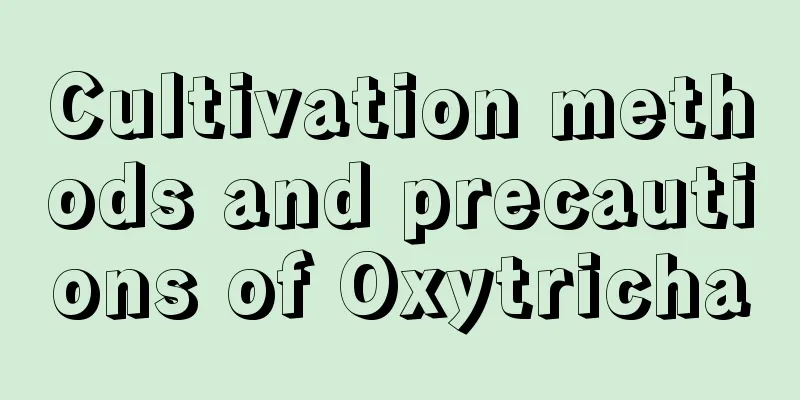Cultivation methods and precautions of Jiulunta

1. Breeding methods1. Temperature RegulationIt has extremely strict requirements for its growing environment. It can neither withstand the cold nor the scorching sun, and the best growth temperature should be maintained at 10℃-20℃. Therefore, it needs to be shaded when it is exposed to the sun on sunny days, and when the temperature is very low in winter, it should be moved indoors. This way, the temperature can be guaranteed and it can receive sunlight, which is suitable for its growth. 2. Soil selectionThis plant is not only quite strict with its sunlight requirements. At the same time, the requirements for soil are relatively high. When breeding, you need to choose sandy soil that is highly breathable, well-drained, and rich in nutrients. Do not use clay, otherwise the absorption of nutrients will be concentrated in the roots, and the nutrients needed for the upper part cannot be supplied in time, and good growth cannot be guaranteed. 3. Fertilization methodThis plant is a fertilizer-loving succulent plant. In addition to the fixed number of fertilizations each year, you can also add two or three more flower fertilizers. However, no additional fertilizer is needed during its slow growth or dormant period, otherwise it will stop growing because the nutrient content exceeds the range it can bear. 4. Watering methodLike other succulents, it is relatively drought-resistant. You need to wait until the plant has completely dried up after the last watering before watering it again. If it has not completely dried up, there is no need to water it again. 2. PrecautionsBecause the leaves are relatively light and pure in color, compared to other varieties of succulents, their requirements for light are not high and they do not need to be exposed to direct sunlight. When planting, you need to first spread a layer of leaf mold on it, and then add a little pumice. It is also worth mentioning that it not only has excellent ornamental value, but also has the function of purifying the air. |
<<: Main varieties of ornamental pineapples
>>: When do cherry blossoms bloom in Tokyo?
Recommend
What flowers are suitable for growing in Leshan? What are the city flowers and trees?
1. Climate characteristics of Leshan Leshan has a...
When and how to plant baby vegetables
Growth habits of cauliflower Ercai likes a warm, ...
When does blue chrysanthemum bloom?
Flowering period of blue chrysanthemum Generally,...
Gardenia cultivation tips and precautions
Many friends like some flower and plant varieties...
When is the best season to grow spinach? How to grow spinach?
Spinach is suitable for growing in cool climates ...
The temperature has dropped! Before moving the flowers in, do these 4 things first to ensure that the flowers can survive the winter smoothly!
In fact, not only we are cold, but also the plant...
Taboos of growing green radish at home
1. Climbing all over the room It is a shade plant...
Can Monstera be watered with beer?
1. Can be poured Monstera can be watered with bee...
What are the plants with three petal leaves?
1. Oxalis There are many varieties of Oxalis, amo...
What to do if ivy root rots
1. Moisture Too much water is the main cause of r...
How to change the pot of Huangli
Prepare the Soil The flowerpots for succulents ar...
When is the best time to sow bluebells?
The right time to sow bluebells Campanula belongs...
What to do if the African violet leaves rot
1. Pay attention to ventilation and lighting Afri...
How to Make a Japanese Maple Bonsai
According to the shape of the tree stump, we can ...
The flower language and cultural origins of lemon
The flower language of lemon The flower language ...









